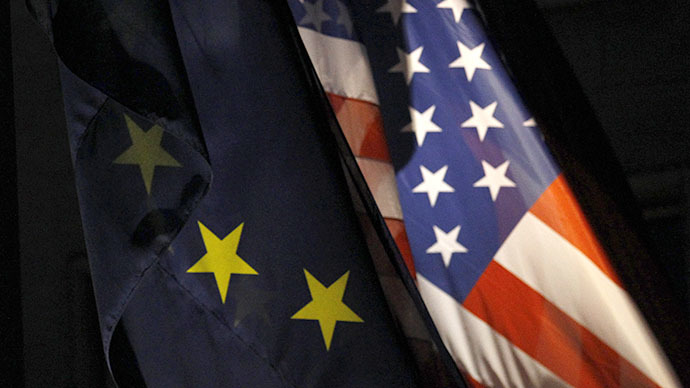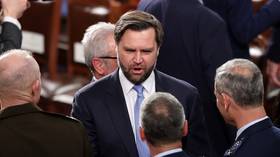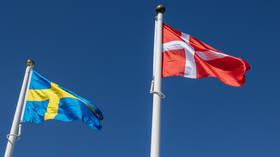‘Tougher sanctions against Russia would expose split between US and EU’

The US imposition of sanctions against Russia puts Washington at odds with major European powers that are set to lose much more than the Americans, Alexander Mercouris told RT.
RT:The sanctions don't appear to be as tough as they have first sounded. What do you make of this?
Alexander Mercouris: I think what has happened here is that the Americans have been pushing really hard for sanctions against the Europeans, and I think this is partly intended to push the Europeans towards adopting more severe sanctions than the Europeans seem willing to do. And as for the sanctions themselves, yes I think one cannot discard them completely, but they are not the most extreme sanctions that could have been imposed, not by a very long way.
RT:Well you say this was done in conjuncture, certainly after talking to EU leaders. The EU seem reluctant to imposed new sanctions, aren't they?
AM: The EU in fact put off consistently the decision to impose sanctions, even though in the beginning of June it indicated that it would do. Frankly I think, most of the European governments, the most important European governments, Germany, France, Italy, Spain are not enthusiastic about this idea of sanctions at all. The trouble was they committed themselves to it back in March, when the situation looked very different and now they are stuck with the commitment that they do not really want.
RT:Europe does a lot of business in Russia. America does not do as much. What is it going to mean for Europe, will there be a knock-on effect here? The general sentiment isn't great, is it?
AM: I think there will be some knock-on effect here. It is going to have an effect, but I think also, and I think has become very clear over the last month, there is a determination in Europe among business leaders, amongst political leaders here to keep lines to Moscow open, both political and business wise, and try to contain this problem as far as possible. So I think that is going to continue actually, and I think there will be some sort of irritation within Europe actually at the way they probably feel the Americans are trying to push them into this.
RT:Russia's deputy foreign minister says Moscow will take their own measures against these sanctions. What will those measures be?
AM: I think we will have to just wait and see about that. I mean there are all sort of deals are being done between Russia and the US. One example is that Russia provides titanium for American aircraft. We will see what the Russians have in mind. They will respond because these are things which they cannot respond to. I mean they have to respond to them. But I think, again, the Russians would want to keep windows open if possible to Europe and would not want this thing to escalate too far.
RT:A new American-Iranian Council study says that Washington lost up to $175 billion by imposing sanctions on Tehran. Could there be similar loses for the US here, do you think?
AM: This is a profound mistake by the US. It is going far beyond the obvious economic loses. What the US is doing is using its position at the center of the world financial system to basically punish Russia and countries it does not like. Now with a country like Iran, Iran is a relatively small economy. Russia is a big economy. If you try to use your position at the center of the financial system, which is the position of trust as a mechanism to put political pressure on people, that would take that trust away and eventually your whole position at the center of the financial system will erode and I think that is happening.
RT:Why do you think, there were not tougher sanctions here?
AM: Well, I suspect the short answer to that is that the Europeans said flatly “no” and I think if the US have gone for much tougher sanctions than the ones it has, it would have clearly exposed the split between the US and Europe on this issue. And that is one thing they cannot possibly allow because in a situation where Europe is seems to be siding with Moscow against Washington, would make Washington look isolated, not Moscow.
The statements, views and opinions expressed in this column are solely those of the author and do not necessarily represent those of RT.












